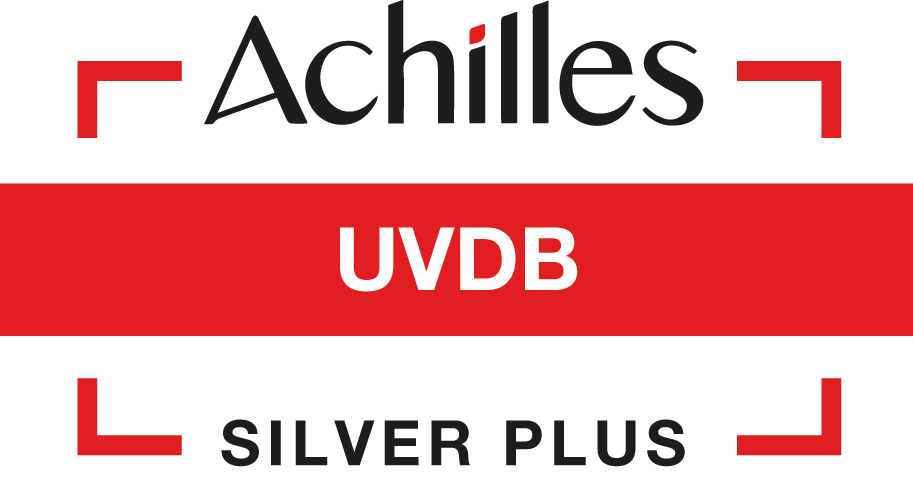LCRIG content director Alec Peachey carries out regular interviews with small and medium size enterprises (SMEs) to highlight the work they’re doing and the types of technologies that are driving innovation forward. This week, Josh Sweeney – director of marketing & growth at Multevo – discusses how being open to change can lead to benefits for companies and the sector more widely.
Q. What is the best way to try innovations on a huge customer base?
A. “The business was setup on an innovation 10 years ago. We started out as Multihog UK and introduced the Multihog to the UK market. At that time no one knew what the Multihog was and we were still finding our customer base. Now I feel like each customer’s achievements in changing speaks for itself and their endorsements are really valued by us and the sector.
For me, it is a simple step by step process:
- Firstly, you need to understand the sector and each customer’s way of working. Collaboration is key at this stage to try to identify areas of operational improvement.
- Secondly, you need to prove beyond doubt that an innovation has measurable advantages to the traditional way of doing things. Example references are useful but having the opportunity to trial is essential.
- Thirdly, you need to support the customer throughout the transition process to help them realise the optimum results.”

Q. As an SME, what are some of the main challenges you face when it comes to engaging with the wider sector?
A. “Since 2010 we have supplied hundreds of machines working in around 40 per cent of all UK councils and most tier one contractors but it doesn’t get any easier! I suppose the challenge is to engage and understand each customer individually. This takes time; especially when local authorities are up against it in terms of time and resource it is difficult to try new approaches or products. Now that we also self-deliver works using the Multihog the latest challenge is being able to trial our services without being on the traditional supply chain frameworks. We are usually locked out.
“This can also prove difficult when we are competing against local contractors who have historically always been there and done things a certain way so the work is programmed and batched according to the way it has always been done. Countless customers aren’t able to give us a go because of this – we are hopeful the Blackpool Pavement Framework will really help open some doors.”
Q. What cutting edge technologies are you most excited about?
A. “The use of technology to manage and improve our own internal business processes has allowed us to streamline the way we work. When we began to deliver a service using the Multihog we knew we had to work hard to get noticed from the traditional contractors out there.
“We wanted to use technology to enable us to be an exemplar at what we do in the industry so we worked with early adopter customers to understand what they would want from their ‘ideal partner.’ This led to development of the Multevo App and it now gives us the ability to share information with the client as a partner. For an SME to have developed our own App and seeing the benefits to us and our customers this is really rewarding. When customers see the data they often ask if they can use the system themselves so I think this could be an unintentional but exciting opportunity moving forward.”
Q. In what ways does the sector need to evolve?
A. “For me the sector should be more open to change because organisations that are forward thinking see the tangible benefits as a result and this strengthens the sector as a whole. Three or four years ago we found some organisations didn’t have the desire or resource to look to utilise the Multihog to try to do things differently. As such we continued to innovate and the clue is in the name – Multevo.
“We naturally evolved as a business and rebranded because we started delivering innovative services using the Multihog innovation. The ethos of self-delivering on behalf of the client would allow us to prove the concept but it has also enabled customers that don’t have the internal infrastructure or investment to benefit from our offering. If you can’t get the sector to evolve do it yourself!”
Q. In what ways can the industry work better with local authorities and should there be a greater sharing of knowledge?
A. “In my opinion the industry is in the best place for sharing best practice than at any other time in my years working in highways. LCRIG has generated a really positive environment for public and private engagement and other organisations in the offing such as the Highways Sector Council seem to be creating that platform. Maybe I’m an optimist? Time will tell.”
Q. How do you stop innovation from just being another buzzword and instead something that is acted upon?
A. “It is a difficult one isn’t it. I can only speak from our experience but it goes back to one of my earlier points. Its about proving the quantifiable benefits of innovation versus the conventional approach – a real-life trial can put this to the test and allow for progression.”















